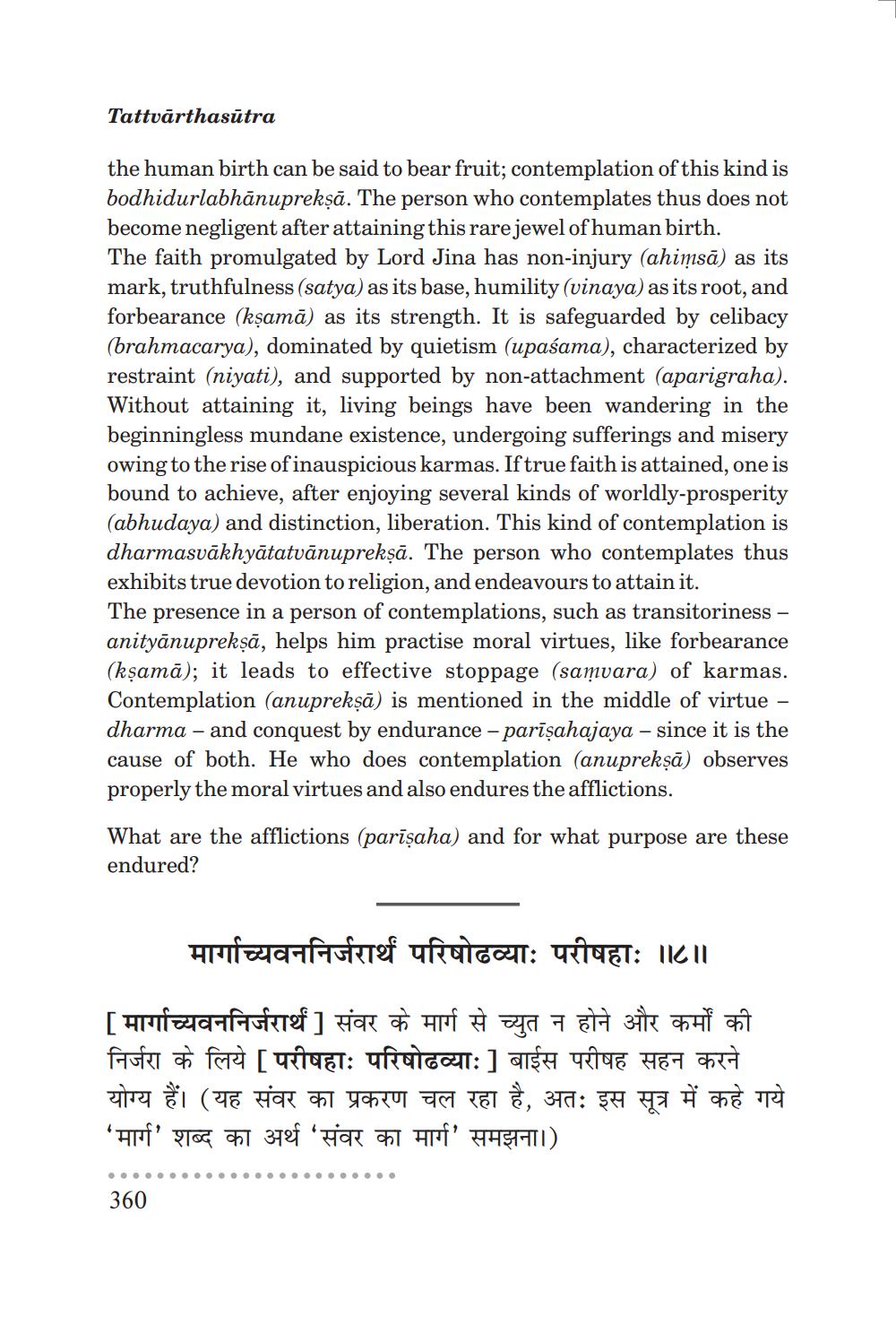________________
Tattvarthasūtra
the human birth can be said to bear fruit; contemplation of this kind is bodhidurlabhanuprekṣā. The person who contemplates thus does not become negligent after attaining this rare jewel of human birth. The faith promulgated by Lord Jina has non-injury (ahimsa) as its mark, truthfulness (satya) as its base, humility (vinaya) as its root, and forbearance (kṣamā) as its strength. It is safeguarded by celibacy (brahmacarya), dominated by quietism (upaśama), characterized by restraint (niyati), and supported by non-attachment (aparigraha). Without attaining it, living beings have been wandering in the beginningless mundane existence, undergoing sufferings and misery owing to the rise of inauspicious karmas. If true faith is attained, one is bound to achieve, after enjoying several kinds of worldly-prosperity (abhudaya) and distinction, liberation. This kind of contemplation is dharmasvākhyātatvānuprekṣā. The person who contemplates thus exhibits true devotion to religion, and endeavours to attain it. The presence in a person of contemplations, such as transitoriness anityānuprekṣā, helps him practise moral virtues, like forbearance (kṣamā); it leads to effective stoppage (samvara) of karmas. Contemplation (anuprekṣā) is mentioned in the middle of virtue - dharma - and conquest by endurance - parīṣahajaya - since it is the cause of both. He who does contemplation (anuprekṣā) observes properly the moral virtues and also endures the afflictions.
What are the afflictions (parīṣaha) and for what purpose are these endured?
मार्गाच्यवननिर्जरार्थं परिषोढव्याः परीषहाः ॥८ ॥
[ मार्गाच्यवननिर्जरार्थं ] संवर के मार्ग से च्युत न होने और कर्मों की निर्जरा के लिये [ परीषहाः परिषोढव्याः ] बाईस परीषह सहन करने योग्य हैं। (यह संवर का प्रकरण चल रहा है, अतः इस सूत्र में कहे गये 'मार्ग' शब्द का अर्थ 'संवर का मार्ग' समझना । )
360




